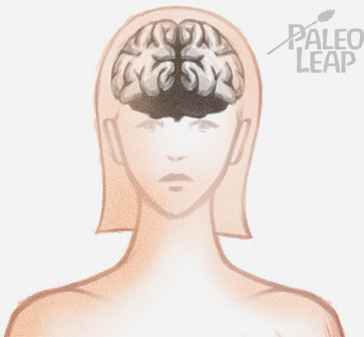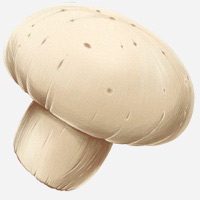Medicinal mushrooms are a staple of traditional Chinese medicine, and they’re often attractive to people who are trying to be as natural as possible and avoid highly processed stuff in general (whether it’s food or medicine).
But bear in mind that Black Widow spider venom is also natural, and that’s a really painful way to die. Tuberculosis is natural. Head lice are natural. Indoor plumbing is unnatural. Glasses and contact lenses are unnatural. The question isn’t whether or not something is “natural” (a term that, in any case, is almost impossible to define objectively). The question is whether it actually works and provides the benefit that you’re expecting.
With that in mind, here’s a look at research! We’re walking through some human and animal studies on 4 medicinal mushrooms, looking for scientific evidence about what works and for which health conditions.
(Just to clarify, this isn’t referring to supplements and extracts, not just eating mushrooms as an ordinary part of your diet. A nice grilled Portobello is very tasty and completely Paleo-friendly, but as far as anyone knows, it doesn’t have special nutritional properties that make it medicinal.)
1. Cordyceps (Cordyceps sinensis)
The claim: it’s valuable for kidney health and sexual health, especially in men.
The evidence: there’s some evidence for cordyceps and kidney health in animal studies but not so much in humans. This review was lukewarm at best about the potential for cordyceps to help with human kidney function after kidney transplantation.
As for male reproductive health, this study in mice was optimistic as was this one in rats, but neither could cite any human research to back that up.
Some other human studies in miscellaneous ailments have also turned up disappointing results, like this one, which found that cordyceps had no effect on symptoms of upper respiratory disease. On the other hand, one study did find that it improved health-related quality of life in patients with asthma.
This review notes that cordyceps species have many interesting compounds that could be valuable for drug discovery – in other words, it’s not that the mushrooms themselves are magically curative; it’s that they contain small and non-standardized amounts of various things that scientists might be able to pull out and make into medicine. Which is really cool! Maybe there’s something amazing lurking in there that hasn’t yet been developed but could become a powerful drug. But the plain extract of the mushroom…doesn’t seem to do it.
What has more evidence: for kidney health, reducing sugar.
2. Lion’s Mane (aka Yamabushitake, Hericium erinaceus)
The claims: the big claim for lion’s mane is for brainpower. It’s supposed to be a nootropic, which is a substance that improves cognitive function.
The evidence: There’s some evidence in rats that it reduces age-related cognitive decline and in mice that it enhances memory. At least one study in humans also found improvements in cognitive function after 12 weeks of taking lion’s mane supplements.
As this review points out, there’s also some promising rat and mouse evidence that lion’s mane helps alleviate symptoms of depression, but human studies so far are small and not definitive. Overall, there’s more evidence for lion’s mane than for some of the other medicinal mushrooms, but it’s still not a closed case.
What has more evidence: for brain health and cognitive function, 8 hours of sleep.
3. Chaga (Inonotus obliquus)
The claims: health claims for chaga range from diabetes to heart disease to cancer, and some people apparently even believe it can cure HIV. (Spoiler: there is no such thing as a mushroom that cures HIV.)
The evidence: some studies in animal models have shown that chaga mushroom has some anti-cancer and anti-inflammatory effects, but this review found only two studies in humans, both of them 30 years old and of very dubious quality.
Another review found some promising evidence that chaga mushroom extract has antidiabetic, anticancer and immune system-stimulating effects – in cell models and animal models. But the review concluded by stressing that “results from animal and cell studies do not always correlate well with those obtained from human studies.” Various compounds extracted from chaga mushrooms might kill cancer cells in a test tube, but that doesn’t actually mean that eating the extract will prevent or cure cancer in a human.
What has more evidence: for general health and avoiding metabolic diseases, regular physical activity of some kind.
4. Turkey Tail Mushrooms (trametes versicolor/coriolus versicolor)
The claim: they prevent and/or cure cancer.
The evidence: this review found some evidence that turkey tail mushroom extracts were associated with a higher quality of life during cancer treatment (e.g., less fatigue) and that they may possibly be associated with higher survival rates and greater immune system activation, although the evidence wasn’t great. This page from the Memorial Sloan-Kettering Cancer Center has more information about turkey tail mushrooms and cancer treatment – overall, it looks pretty underwhelming.
What has more evidence: for preventing cancer, there’s no one magical food or supplement – probably the closest thing to a magic anti-cancer pill is quitting smoking. Most studies agree that eating a wide variety of fresh fruits and vegetables is associated with a lower risk of cancer. For curing cancer, a doctor.
You are (hopefully) not a mouse.
This review of several different studies on different species of mushrooms has a valuable conclusion:
“The outcome of these studies is variable and caution is recommended when extrapolating the results. Many factors, such as poor study design, small sample sizes, lack of replication, mushroom variability, and problematic statistical methods, make it difficult to rely on the results of any individual study.”
This review is even more critical:
“There is no scientific evidence supporting the use of mushroom extracts in the treatment of disease. Claims about the miraculous properties of medicinal mushrooms should be evaluated critically.”
But the review also notes that compounds extracted from “medicinal” mushrooms may very well have valuable medicinal uses, if they’re researched, standardized, and administered at higher doses – the way that many common medicines have origins in naturally-occurring compounds.
Traditional Chinese medicine advocates might say this goes against the whole spirit of using medicinal mushrooms as a natural remedy, but maybe that’s the point: the two systems don’t necessarily mix very well. In some ways it’s hard to evaluate traditional Chinese medicine using techniques like randomized controlled trials – modern science is based on a totally different way of understanding disease and medical treatment. But if you’re relying on studies and modern medical science to understand the world, then this is what you’ll find – not a lot of strong evidence for the mushrooms, and a lot of “maybe, someday, once we get past the test tubes” conclusions about various compounds and chemicals they contain.
